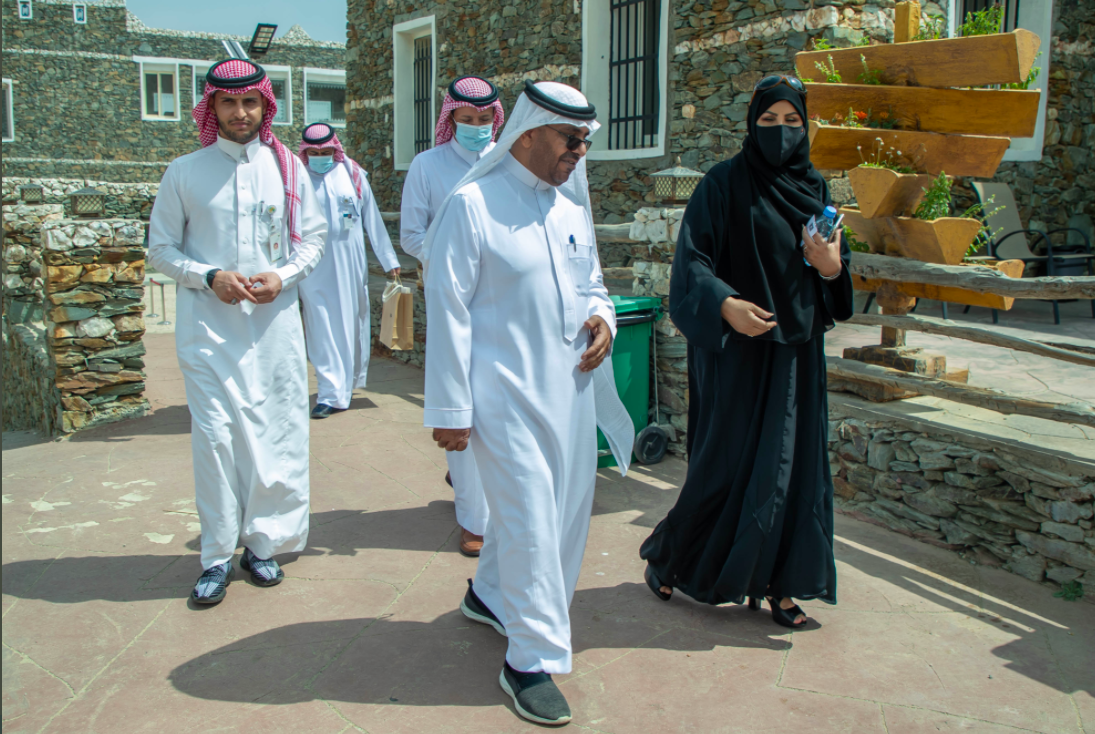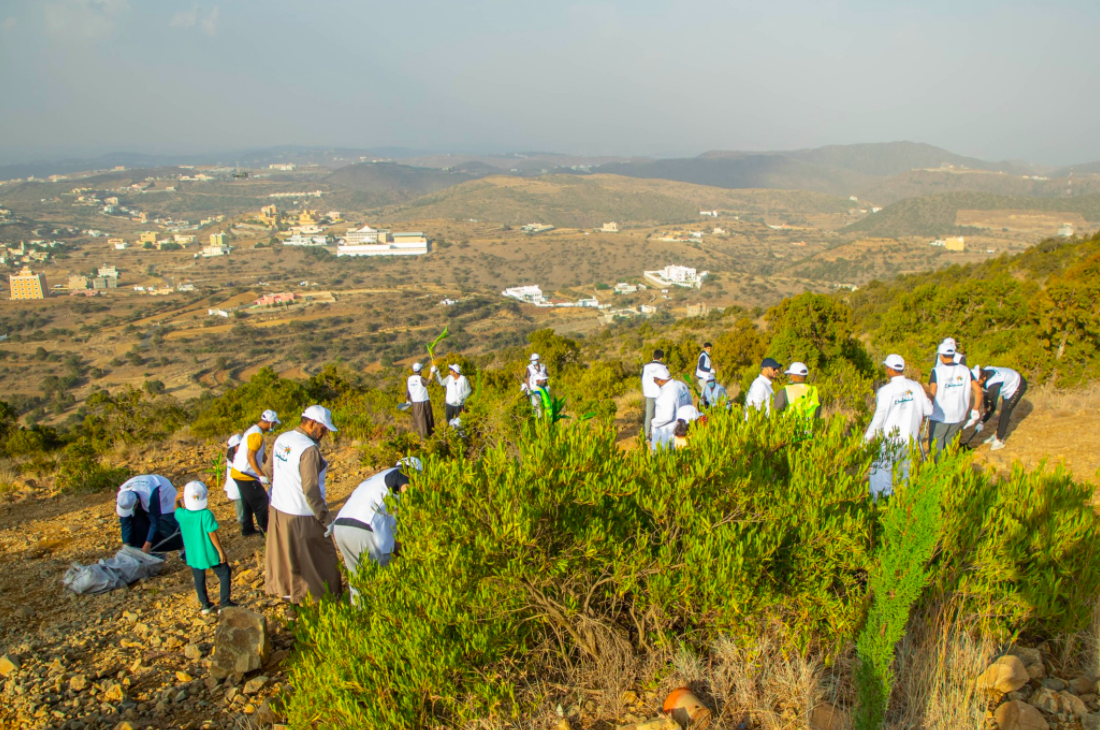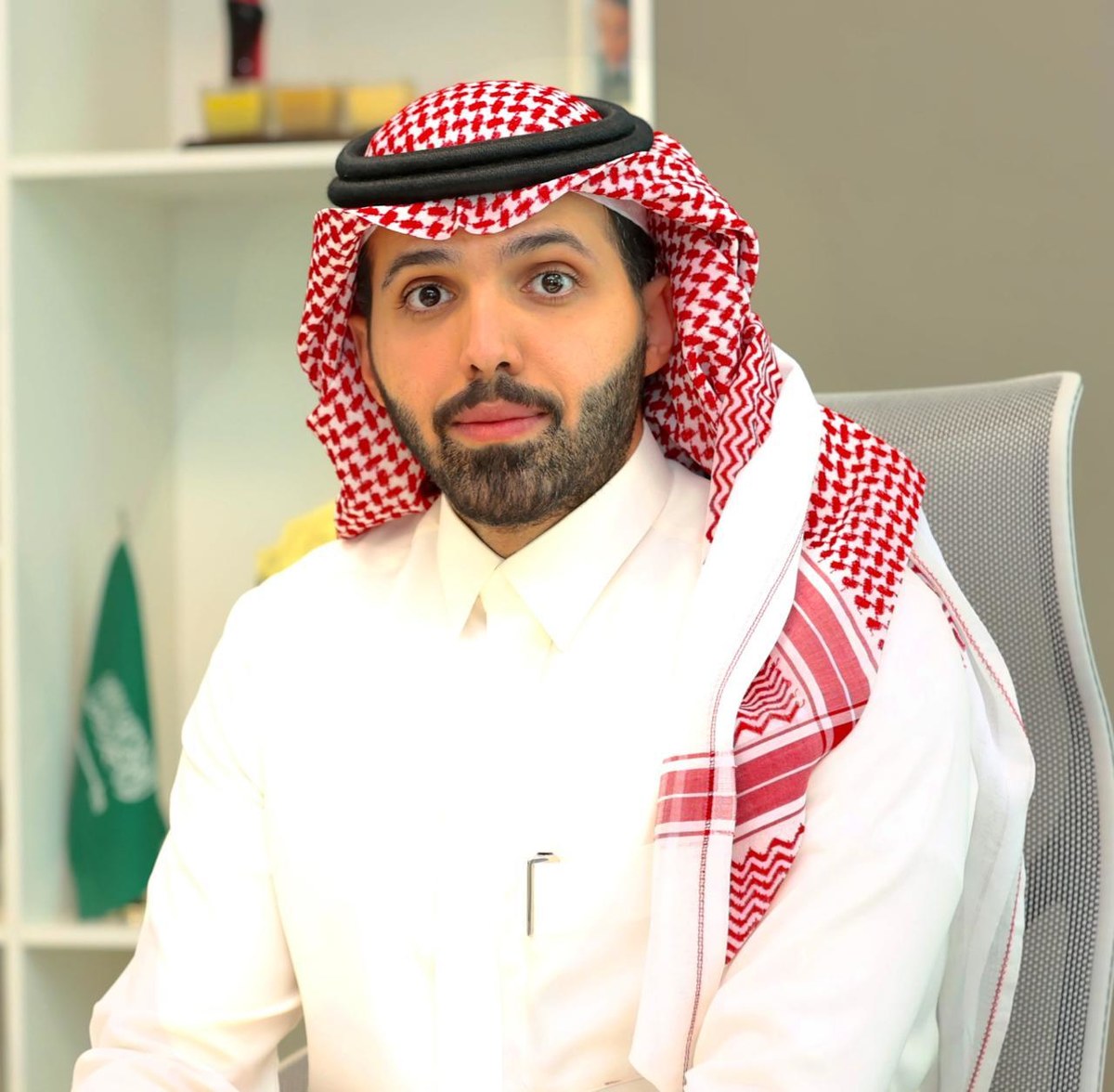JEDDAH: The Saudi Ministry of Human Resources and Social Development (HRSD) is seeking to promote volunteering in tourism through the National Volunteer Portal, in cooperation with various non-profit agencies.
The official spokesman for the HRSD, Saad Al-Hammad, told Arab News that volunteering in 2020 resulted in promising numbers in the tourism field, which are expected to double for the current year.
“The HRSD aims to achieve one of Kingdom’s Vision 2030 goals by reaching one million volunteers soon, and this will be achieved through joint integrated efforts and continuous cooperation between the ministry and the relevant authorities in addition to the valued efforts of volunteers,” he said.
 “This will reflect positively on the growth of the Kingdom’s tourism economy, as it constitutes a noble human value and promotes a culture of community coexistence and national bonds. Accordingly, it will enhance the contributions of volunteer work among different institutions.”
“This will reflect positively on the growth of the Kingdom’s tourism economy, as it constitutes a noble human value and promotes a culture of community coexistence and national bonds. Accordingly, it will enhance the contributions of volunteer work among different institutions.”
The HRSD has worked on several volunteering initiatives in the tourism field, including a campaign called “To Keep it Clean” held in cooperation with the Ministry of Tourism and various agencies from the government and non-profit sectors, with the participation of around 350 volunteers, which resulted in 1,400 volunteering hours.
The ministry also held a workshop that aims to spread the culture of volunteer work in the tourism sector in Asir, with more than 45 volunteers attending.
HIGHLIGHTS
• The Ministry of Human Resources and Social Development aims to reach 1,000,000 volunteers soon.
• The National Volunteering Portal launched its phone application in July.
• The portal aims to ease access to volunteering work for individuals in the Kingdom.
• The portal offers prizes for the best volunteers.
“The demand is very high on volunteering opportunities offered through the National Volunteer Portal. Whether in the field of tourism or other fields, the registration becomes fully booked for all available vacancies once it is open for any volunteer work, and that is quite impressive,” Al-Hammad said.
The National Volunteer Portal offers diverse opportunities for volunteer work in fields including the environment, education and healthcare. “These opportunities fit with the skills, and specializations of volunteers in all regions of the Kingdom,” Al-Hammad added.
The portal also works as a link between volunteers and various opportunities, and hosts documentation noting their efforts.
On July 7, the National Volunteer Portal launched its phone application to facilitate searching for volunteering opportunities, find online courses and workshops, and through which volunteers can apply for the national volunteer work prize.
Al-Hammad said the number of volunteers in 2020 reached 409,000, with 33 million volunteer hours offered to 21 million beneficiaries, and 156,000 volunteering opportunities.
He added that the number of registered volunteers on the portal has exceeded 640,000 of both genders, in addition to the presence of 3,000 volunteer opportunities provided by the platform.

Hattan Hammodah is a 45-year-old Saudi engineer and the team leader of a volunteering group called L’oyon Jeddah that launched in 2016.
Hattan’s initiative focuses on cleaning Jeddah’s shores and helping the city’s orphans. “Volunteering is a way to tell our beloved country and environment that we care. It also helps us to put a smile on orphans faces and cheer them up,” she said.
Saeed Azhar, too, established opportunities for volunteering in the US in 2013. His group now runs 17 volunteering campaigns in different fields, and as well as working across 10 cities in Saudi Arabia, also has programs in Zanzibar and Tanzania.
“Saudi Arabia has sponsored my educational journey from A to Z, and this initiative has been made to express how grateful I am to this country and its society,” Azhar told Arab News.

The official spokesman for Human Resources Ministry, Saad Al-Hammad. (Supplied)
The volunteering opportunities opened many career doors to some members of the team who became entrepreneurs. “My volunteering experience has changed my life, and it has turned me from an introvert to an extrovert,” he said.
Saudi volunteer Noor Fallatah, 26, has volunteered in over 300 initiatives around Saudi Arabia.
“Volunteering helps me to spread happiness, positivity among community members, and gain more rewards from Allah,” she told Arab News. “Overall, participating in humanitarian initiatives is my area of attention.”




























